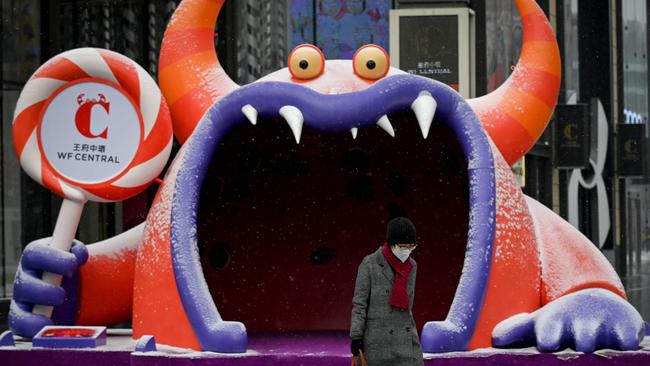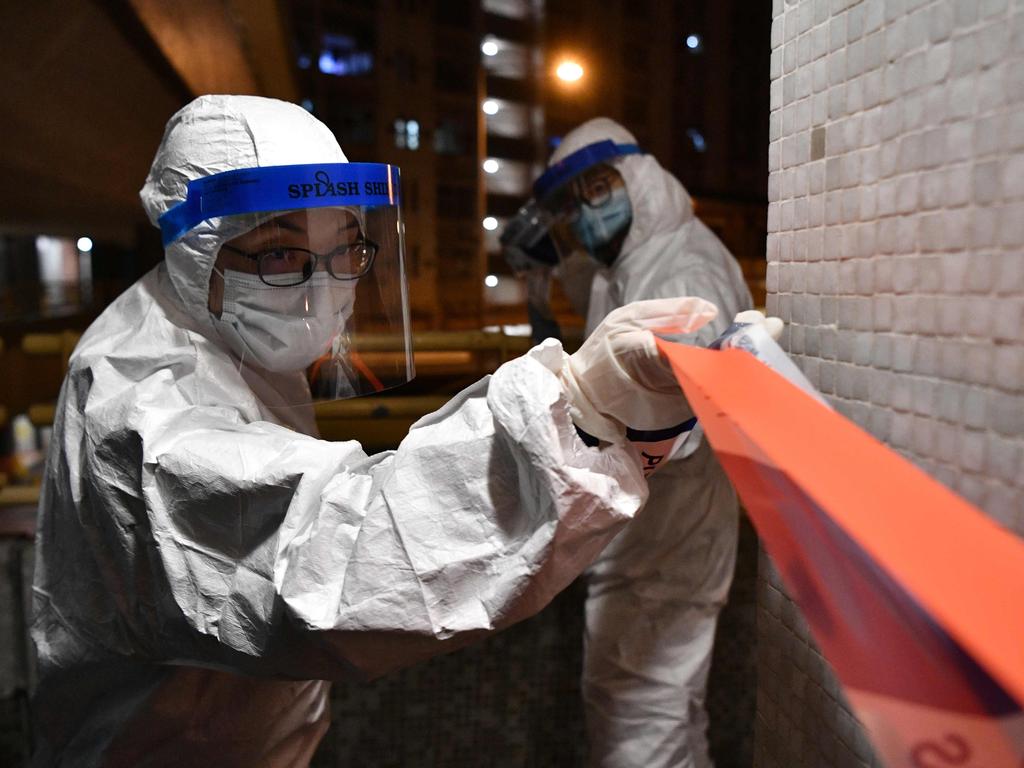
Blackmores sells directly to China and through the “grey” market of Chinese tourists visiting Australia who take products back home for friends and relatives as well as Australian-based Chinese.
What would have been a particularly strong time of the year for the company — the Chinese New Year period — has now become a black hole for Australian businesses catering to Chinese tourists who are now temporarily banned from coming to Australia.
As the half-yearly profit season begins this week, the spotlight is being thrown on to the many different interlinkages between the vast range of Australian businesses and the China market.
Lower direct sales to China, the flow on from what is now an indefinite suspension of Chinese tourism, and interruptions to supply chains are just part of the equation for companies which now have many complex links with the world’s second largest economy and Australia’s largest trading partner.
Four years ago, in 2016, Blackmores shares hit a record high of more than $206 as expectations rose about the potential upside of the China market.
Concern about the impact of the coronavirus on its earnings saw Blackmores go into a trading halt on Monday, with its shares last trading at $89.44.
Blackmores was due to release its half-year results on February 25 but the negative impact of the virus, which has virtually closed businesses in China, and shut down the lucrative Chinese tourist market in Australia, has clearly been significant enough for the company to seek to update the market two weeks earlier.
Yesterday saw bionic ear manufacturer Cochlear, another company which has enjoyed strong sales to China, reduce its profit guidance for its full year results by $30m as a result of the expected impact of the coronavirus on implant surgeries in China, Hong Kong and Taiwan.
China is one of the top five markets for Cochlear, which is also building a factory in the western city of Chengdu to service the market.
Cochlear’s business in China has been hit by a suspension of surgeries — which it hopes will be resumed once the virus threat comes to an end.
Its latest figures are assuming there will be no disruption to the importation of supplies from China, with Cochlear saying it expected suppliers to resume production once the New Year holiday period is over.
Announcing the lower profit guidance, Cochlear’s chief executive Dig Howitt pointed to the short-term impact of the SARS virus in 2003 when the company’s sales took a hit for three months but then bounced back with deferred surgeries taking place.
Worse than SARS
Companies with exposure to China are hoping for a SARS-like impact — a short-term hit followed by a quick return to normal and a catch up of business.
But the coronavirus has the potential to be a lot more deadly and more serious than SARS. The SARS virus began in southern China and spread to Hong Kong where an open government and a good public health system tackled the problem quickly.
In contrast, the coronavirus originated in central China, in the industrial city of Wuhan, with 11 million people. It spread around the country because of a combination of the initial cover up and the massive outward travel schedule ahead of the Chinese New Year period where millions of the city’s migrant workers and students headed for their home towns.
The death toll from the coronavirus is now more than 1000, with thousands still suffering from the virus in China and no end in sight.
The virus has delayed the return to work for Chinese businesses and manufacturers which were supposed to be in full post-holiday operation by now. But many factories and businesses have been given another week to reopen with the streets of China’s cities looking like ghost towns.
SARS resulted in 774 deaths in total and had minimal impact on China’s industrial production.
The world in 2020 is a very different place than in 2003, given the extent of the integration of the Chinese economy with the rest of the world and its contribution to global growth.
In 2003 China was just joining the World Trade Organisation.
Like SARS, the coronavirus may eventually disappear when the weather in China warms up, but its impact on the global economy in general and Australia’s in particular will be much larger.
Agribusiness specialist Rabobank pointed out that Australia now sends 28 per cent of its agricultural exports to China, compared with only 8 per cent in 2002, just before the SARS crisis.
While perishable agricultural exports like rock lobsters have already been hard hit, Rabobank warns of “first and second round” impacts of the virus hitting other agricultural exports such as meat and wine as Chinese diners continue to stay at home.
Expectations differ on the impact of the virus on the Chinese economy, with Fitch Ratings this week downgrading its estimate of Chinese economic growth from 5.9 per cent to 5.6 per cent.
Just how Beijing reconciles the reality of the slowdown of its economy with its official forecasts (which are always met) remains to be seen, but it is expected to respond with more stimulatory measures over the year.
Westpac yesterday became the first major Australian bank to announce measures for customers whose business has been hit by the coronavirus. This follows moves by HSBC and Standard Chartered which have a big Asian footprint.
Westpac’s move includes deferred repayments on loans by up to three months, deferred payments on credit cards, the potential to restructure loans and access to financial counselling, and is a reflection of how many smaller businesses may be impacted.
Big miners like iron ore company Fortescue are major exporters to China, but in Australia shops, hotels and restaurants which traditionally service Chinese tourists are hurting.
Results over the next few weeks will throw up other examples of exposure to China. With no early end to the crisis in sight the estimates made over the next few weeks could well end up being on the conservative side.
China’s rapid growth over the past 40 years has taken the world economy into uncharted waters. Its structural weaknesses in terms of health policy and public hygiene in its increasingly crowded cities, as well as its institutional reflective action to cover up bad news, shows how much the world is exposed to China’s shortcomings as well as its upsides.








Vitamin company Blackmores will reveal today just how much it expects its earnings to be hit by the deadly coronavirus which has cut into sales to its lucrative China market.